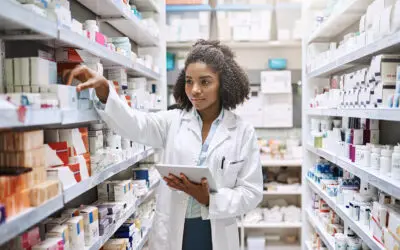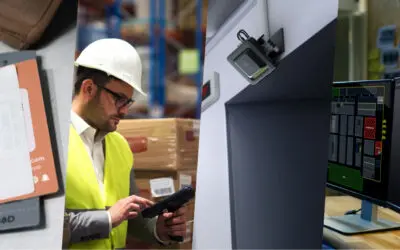In an unprecedented measure to help the beset of the world’s worst outbreak of COVID-19, New York Gov. Andrew Cuomo, announced his new plan to unify the state’s hospital system. Under this plan, more than two hundred hospitals in New York state, totaling approximately 53,000 beds (before Cuomo told them to double their capacity) will share staff and equipment, with manpower and supplies going to where they are needed most, regardless of system affiliation, according to a Vox report.
Now, more than ever, RFID systems will play an important role in this pandemic response. Only seven of the 200 plus hospitals are using RFID to track their ventilators and only 20 percent of hospitals use systems that have geographical location monitoring tied directly into their devices and systems.
Along with location, RFID tags can also be used to track specific device usage, for hospitals to know quickly if or when they’re running low on vital equipment, or if they have a surplus that could be redistributed. Furthermore, it’s now vital for staff to know which equipment has come into contact with infected patients. This can also apply to the materials used by first responders and the healthcare sector as a whole. Some hospitals are now even tracking how often staff are washing or sanitizing their hands as they move through the premises, along with the location and usage of medical equipment.
From the beginning of the pandemic, the identification of those who traveled from abroad into our country, whether returning residents or visiting tourists, was essential in detecting the first cases of COVID-19. Similarly, the movement of spring breakers from Florida was traced to see if they were bringing the virus to their states; determining isolations and informing about what measures and care each citizen should take.
As the pandemic progresses, the movement of people and their contact circles must be carefully monitored and companies like Google and Apple have come to the rescue to develop their first contact tracing app where smartphones can be used to trace contact among the public when the virus is diagnosed.
The World Health Organization has developed a list of priority medical products for specific prevention, diagnosis, treatment, and rehabilitation procedures for most health care centers, which are essential to the safety and treatment of Corona patients. According to a recent Interpol report of March 19, the Coronavirus outbreak has not been exempted from the circulation of counterfeit medical items; counterfeit chinstraps, low-quality hand sanitizers, and unauthorized antiviral drugs among them. From this, more than 90 countries participate in collective actions against this practice.
RFID in the global health sector is crucial since it allows the identification, verification, traceability, and quantity of not only equipment but medicines as well, and also records and provides important information such as expiration date and serial/batch numbers. The management of the circulation of these products tracks all involved in the supply chain: laboratories, drugstores, health centers, pharmacies, and patients. The safe and precise administration of this data guarantees the supply of authentic medicines, thwarting counterfeit falsifications, and adulterations. At this time, it is crucial to take every precaution and above all, control that what comes into our hands does not come from unreliable sources. With the advent of new medications and very soon with new vaccines, we should incorporate even more systematic controls.
The pandemic has touched the RFID healthcare industry in obvious ways and we are facing not only a challenge, but a new opportunity to continue working to strengthen the health industry supply chain and reach end-to-end traceability of medications, devices, equipment and biologics to ensure people’s wellbeing.



